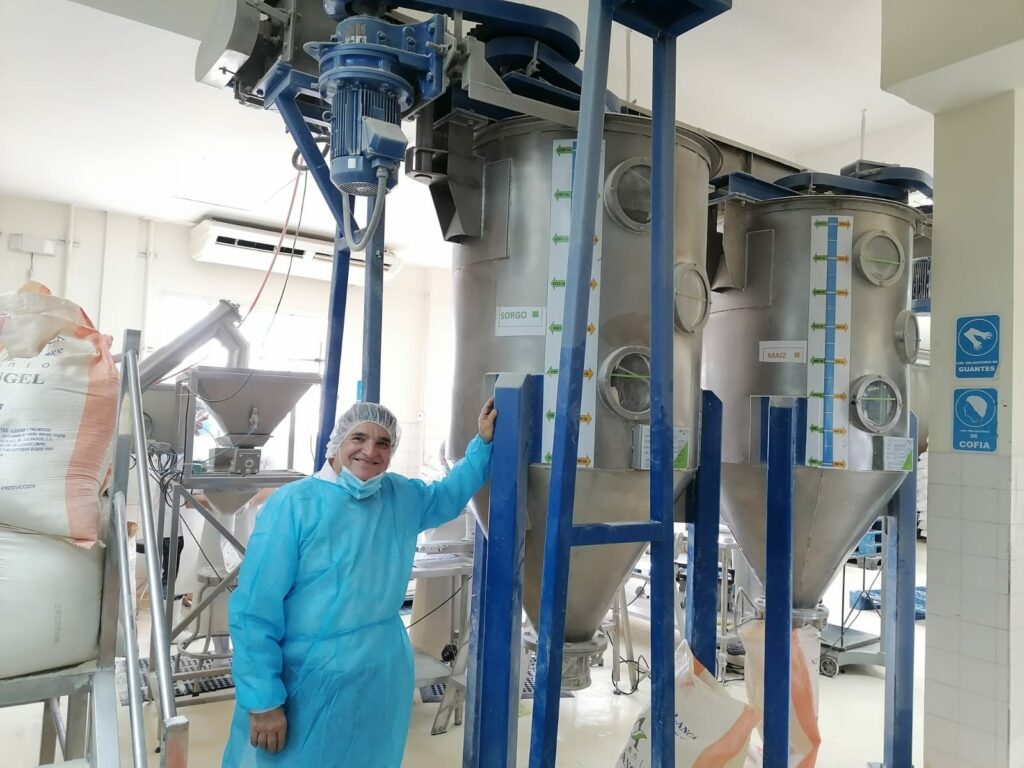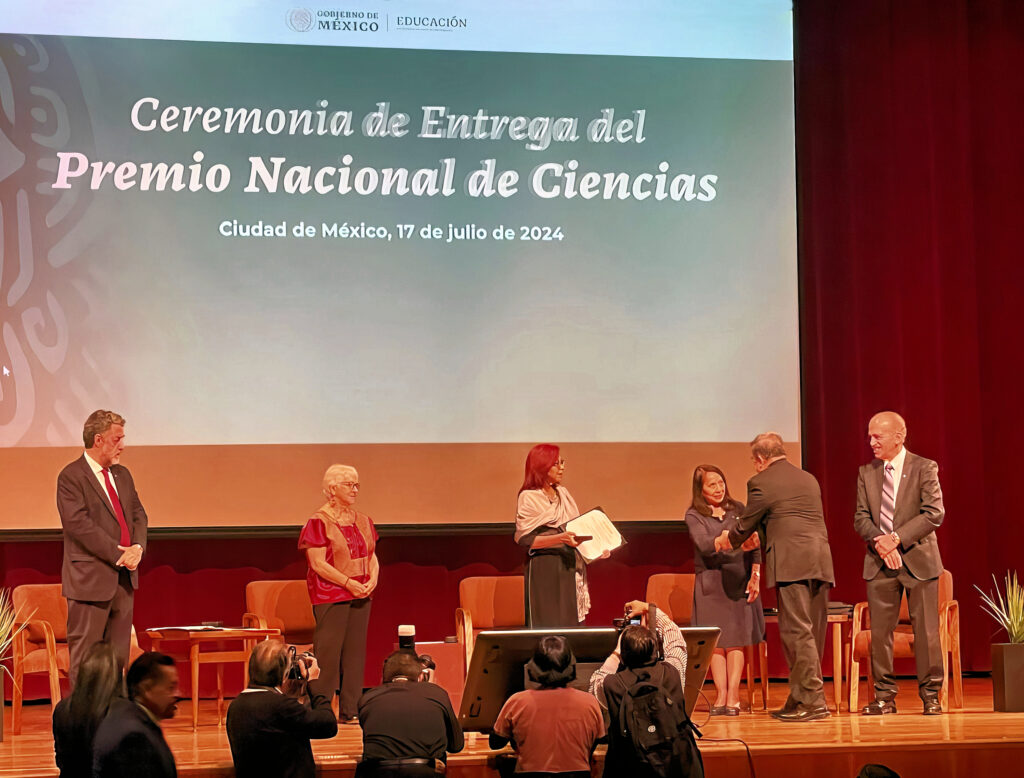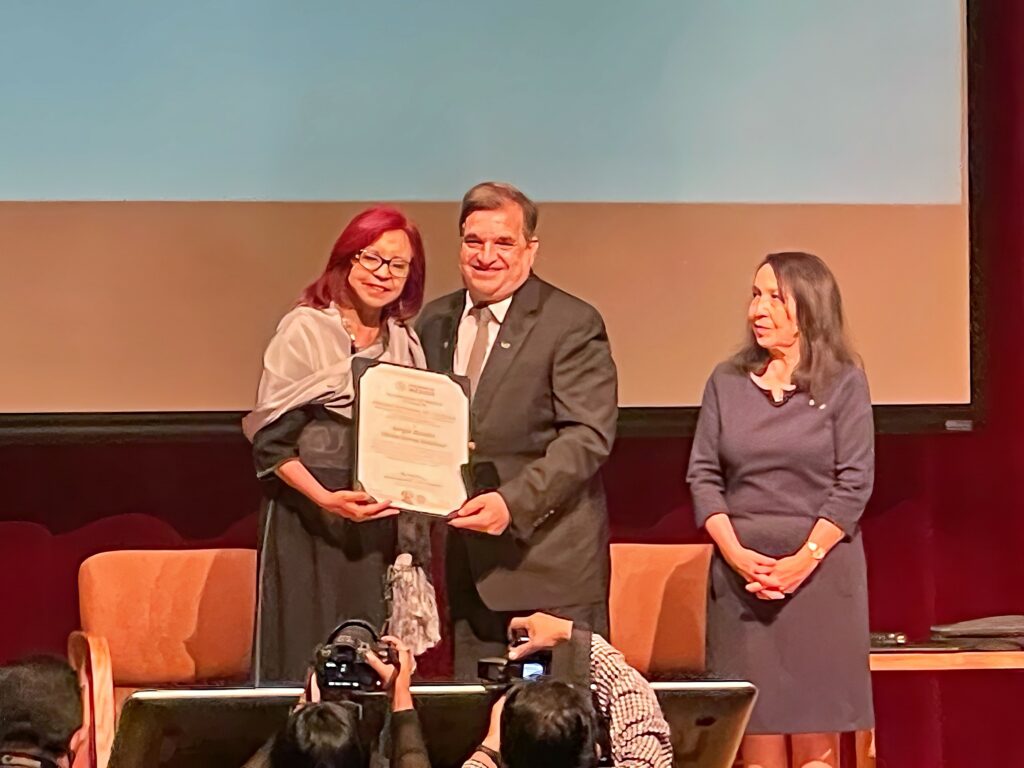
Sergio O. Serna Saldivar’s 30-plus years of scientific research took center stage in Mexico City in July 2024 as he accepted his most prestigious honor to date–Mexico’s national science award. Professor Serna’s home country recognized his “excellent track record of research, innovation and training in the areas of food engineering, biotechnology applied to the development of foods with high nutritional quality and drugs to combat chronic-degenerative diseases.”
Stanford University ranks Serna in the top 2% most prolific scientists in food science and technology in the world. Serna has published 12 books, 73 chapters, 275 referred journal articles, 16 encyclopedia articles and is inventor of nine registered patents and four patent applications. His scientific and book publications have more than 14,000 citations. He has directed 70 masters’ degree and 20 Ph.D. students. WISHH is grateful he made time to advise and train Central American food companies that are WISHH strategic partners that want to capture the nutritional and health benefits of soy protein in a wide array of products.

What drives this busy professor from Mexico’s Tec de Monterrey? Serna is confident that affordable solutions are available to address children’s nutritional challenges, especially access to protein. His life’s work gives him conviction that now is the time to add soy protein to cereal-based foods, including breakfast cereals, snacks and tortillas.
“There is overwhelming scientific information of the improvement of the nutritional value, nutraceutical profile and health-promoting properties of soybean-fortified corn tortillas,” concludes Serna.
Increasingly, tortillas are eaten through the world. Serna’s work confirms that soybeans have improved the nutrition, cost functionality and yield of both corn and wheat tortillas. The enrichment or fortification with 6-8% soybean meal, 4-5% soybean concentrate, or 3-4% soybean isolate is enough to greatly improve protein quantity and quality. With United Soybean Board funding, WISHH supported Serna’s participation in the Tortilla Industry Association’s (TIA) technical conference in September 2024. TIA CEO Jim Kabbani reports the audience was impressed at such a high-caliber presenter.

Serna’s complete scientific paper describes how cereals are the main source of calories and proteins for practically all inhabitants of the planet. These grains provide more than 60% and 50% of the total caloric and protein intakes respectively for an average person. The dependance on cereal grains increases with the level of poverty so low socioeconomic groups normally consume 80% of their calories and proteins from cereal-based foods.
Numerous scientific studies have demonstrated that the wide array of soybean products greatly benefit the nutritional status and health of all physiological stages of humans. This is because soybeans normally contain from 4 to 9 times more protein, at least 10 times more lysine, 6 to 20 times more folates and 5 times more iron and zinc compared to most cereal grains (https://www.nal.usda.gov/human-nutrition-and-food-safety/food-composition). These nutrients make soybeans ideally suited to enrich or fortify the main staples of the world population and prevent protein malnutrition, cognitive deterioration and micronutrient deficiencies like anemia, infantilism, pellagra, beriberi etc. In terms of prevention of chronic diseases, soybeans are viewed as an excellent food option to diminish obesity, oxidative stress, diabetes, cancer, fibrosis, osteoporosis and cardiovascular diseases (CVD) because they are excellent sources of both soluble and insoluble dietary fiber, prebiotics, antioxidants, bioactive peptides, vitamins, especially folic acid, minerals and a wide array of phytochemicals.
Fits with Folate Fortification
Soy protein addition is complementary to global initiatives for addition of folate, also known as folic acid. Soybeans contain from 16 to 20 times more folates compared to maize or wheat so Serna says a soy enrichment mix can supplement lower amounts of folic acid.
Folate deficiencies before and during pregnancy can increase the risk of having a baby born with neural tube defects (NTDs) that dramatically affect the brain or spine. According to the U.S. National Institutes of Health, the estimated average global prevalence of NTDs is two cases per 1000 births, amounting to approximately 214,000-322,000 affected pregnancies worldwide annually.
The United States is also considering measures to respond to a Centers for Disease Control analysis that found there has not been a significant improvement in blood folate levels among Hispanic women of reproductive age. Meanwhile, a World Health Assembly resolution supports “Accelerating efforts for preventing micronutrient deficiencies and their consequences, including spina bifida and other neural tube defects, through safe and effective food fortification.”
According to the Global Alliance for Improved Nutrition, the effort has united the health policy, disability rights, and nutrition communities in a joint effort to combat micronutrient deficiencies and their effects worldwide.
